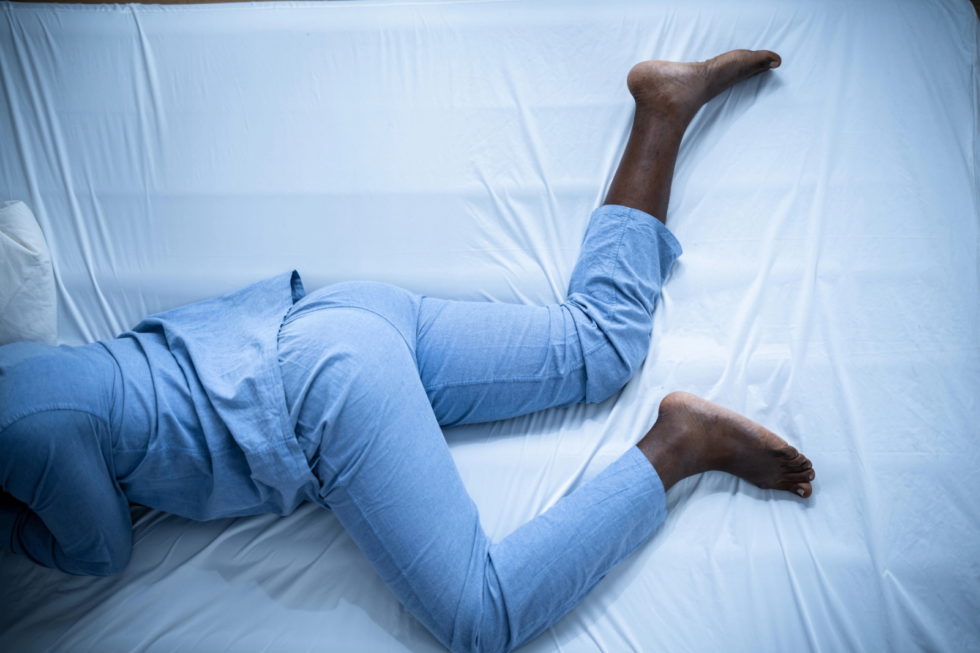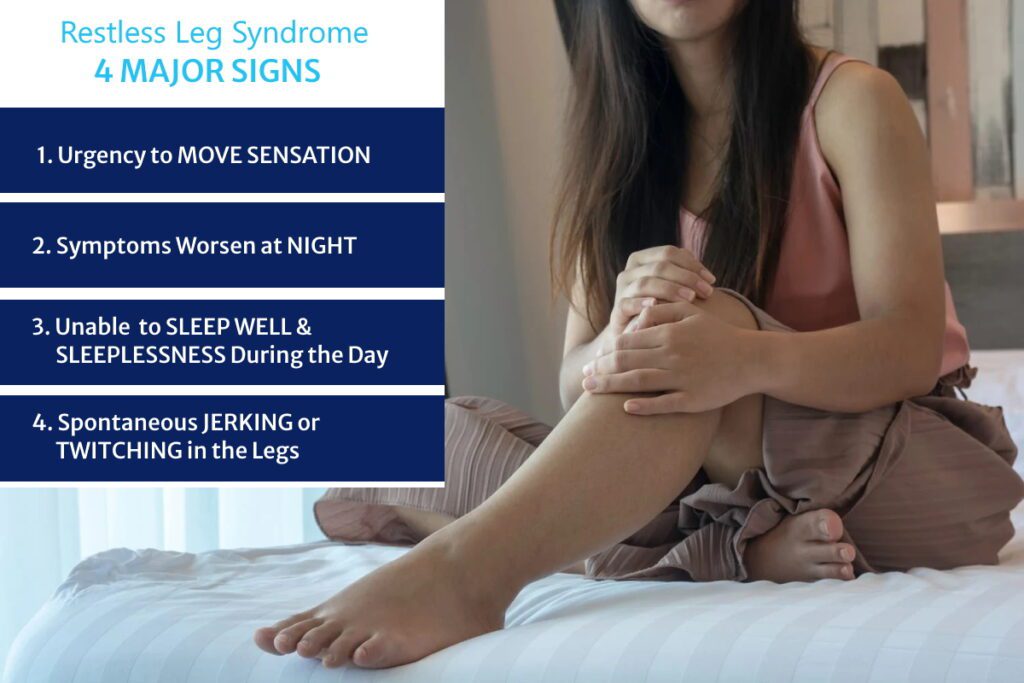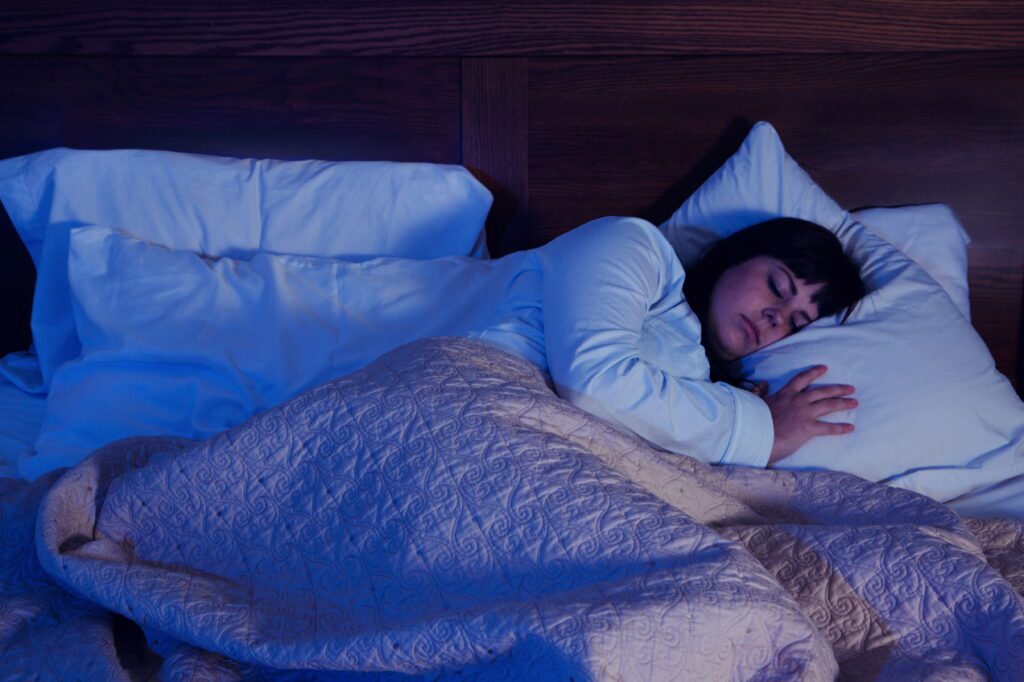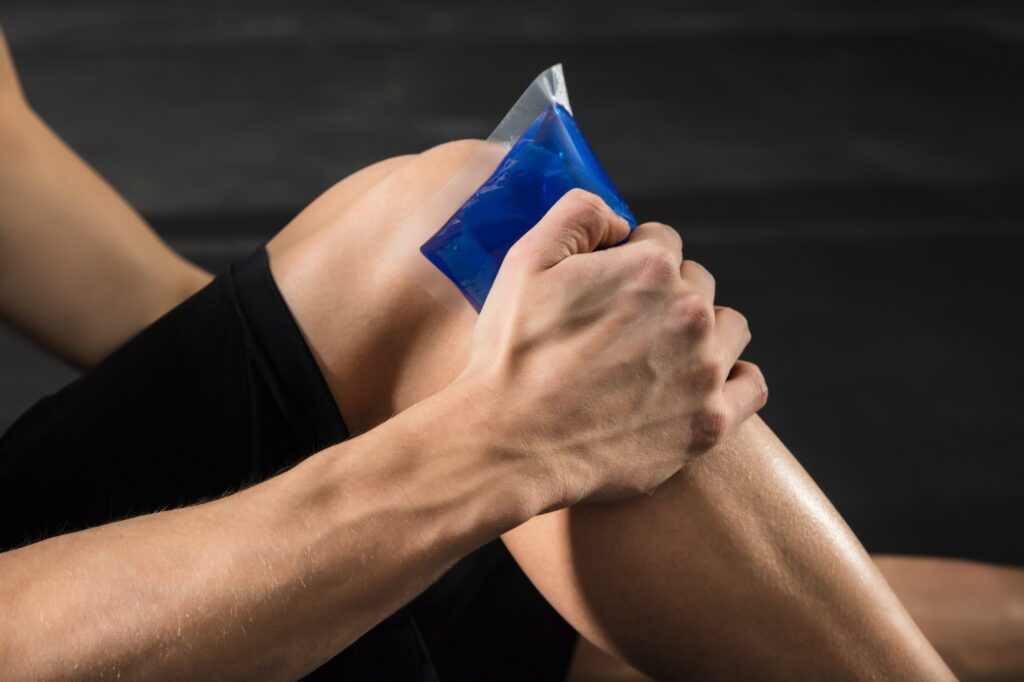Restless Leg Syndrome Awareness in 2022: Why It Matters
Author: StrideCare Internal Team

If you have an irresistible urge to move your legs at night because of intolerable sensations ranging from a “pins and needles” feeling throughout your lower extremities to creeping, crawling, pulling, itching, or burning, you may have restless leg syndrome (RLS). Sadly, few people know about this condition or how to recognize when it’s happening, so they suffer in silence. This is why Restless Leg Syndrome Awareness Day was created, to keep everyone aware of the worsening symptoms and the silent dangers that come with hoping it will all just disappear on its own.
At StrideCare, we observe Restless Leg Syndrome Awareness every September by educating the public about this frustrating and uncomfortable condition and when to seek help. We are your premier center for properly diagnosing and treating various vein and artery conditions like varicose veins and chronic venous insufficiency—likely the underlying cause of RLS.
By treating the root cause of RLS, our patients can experience dramatic improvements in symptoms such as:
- Uncontrollable urge to move your legs while sitting or resting
- Prickling, burning, aching, itching, tugging
- Nighttime leg twitching or kicking
- Pins and needles sensation
- Difficulty falling asleep and staying asleep
- Muscle cramps
- Numbness
- Pulling or creepy-crawly feeling in legs

Restless Leg Syndrome: A Sleep Disorder with Vascular Implications
Restless Leg Syndrome Awareness continues to gain steam because many people aren’t aware that it’s a real disorder with the possibility of life-altering consequences if left unchecked. RLS, alternatively known as Willis-Ekbom Disease, affects approximately 1-10 adults. According to the Restless Leg Syndrome Foundation, that’s 12 million Americans. The first RLS Awareness Day was observed in 2012 and was organized by The Willis-Ekbom Disease Foundation. Sir Thomas Willis was the first to describe RLS in 1672, and Professor Karl-Axel Ekborn was a Swedish neurologist who described the disease in 1945 as part of his doctoral thesis.
In 2013—a year after RLS Awareness Day was first observed—North Carolina declared that it be observed by all citizens and medical professionals. Observation strategies include taking the time to learn more about the condition to help yourself and others and making donations to assist in finding more treatment options. Currently, there is no known cure for the illness itself. Lastly, everyone is urged to consult their doctor if RLS interferes with their daily life and share therapies that work for them.
Restless leg syndrome is formally classified as a sleep disorder since it typically happens when a person is at rest and only improves with movement. As a result, patients often experience fatigue and daytime sleepiness—in addition to the other intolerable sensations mentioned above. More women than men suffer from RLS, and it can affect any age group.

There are a variety of causes for RLS, including:
- Medications — Certain medications such as antidepressants, cold and allergy medications, and even anti-nausea drugs may aggravate leg pain at night.
- Genetics — Leg pain associated with restless leg syndrome does run in some families.
- Pregnancy — 10-34% of pregnant women report experiencing some form of restless leg syndrome, especially during the last trimester. Fortunately, these leg pain sensations typically disappear soon after birth.
- Chronic diseases — Iron deficiency, kidney failure, diabetes, neuropathy, end-stage renal disease, and hemodialysis all include symptoms of RLS. Therefore, treating these conditions can provide relief.
- Vascular issues — The National Sleep Foundation says 98% of patients who experience RLS saw dramatic improvement in their symptoms after receiving treatment for their varicose veins or chronic venous insufficiency. These diseases cause RLS since blood is not emptying out of the legs properly. This leads to a variety of symptoms as patient feels the need to constantly move their legs. Moving one’s legs may be the only way to pump blood back toward the heart.
It’s important to recognize vein disease in its earliest stages and seek help from a medical professional who can guide you on your next steps. As we get older, our veins don’t work as well as they used to. That’s why an average of one in every three adults over the age of 45 develops some form of vein disease. But it can also affect men and women in their 20s and 30s. If untreated, vein disease can lead to restless leg syndrome and other complications.
How Do I Find Relief for My Restless Legs?
Restless leg syndrome may become more troublesome if left untreated, and vein disease—typically the underlying cause—does not cure itself. So, if you are experiencing tingling, burning, or crawling sensations at night that cause you to lose sleep, consider these at-home options while waiting for your doctor appointment day:
- Exercise — Yoga and meditation can help calm the mind and senses and improve blood flow.
- Medications — Certain muscle relaxers and sleeping pills can help people sleep better at night.
- Healthier diet — Lowers cholesterol and blood pressure levels.
- Avoid alcohol and caffeine — Caffeine is known to induce RLS, and alcohol can make symptoms worse.
- Leg massages, hot baths, ice packs, and heating pads — Great for improving blood flow.

If You Have Restless Legs, StrideCare Can Help
While there currently isn’t a cure for restless leg syndrome, this condition doesn’t have to be something you live with forever. Many times, the underlying cause can be alleviated with something as simple as a medication change or changing your eating habits and living a more active lifestyle. When a vein disease is the culprit, there are minimally invasive treatment options to get you back to living a pain-free lifestyle.
StrideCare has long been a leader in performing leading-edge procedures to treat vein disease. This includes varicose veins, as well as spider vein treatment, chronic venous insufficiency (CVI), restless leg syndrome, chronic pelvic pain, pelvic congestion syndrome, May-Thurner Syndrome and more—all the while providing compassionate patient care.
Prior to starting any new treatment or questions regarding a medical condition, always seek the advice of your doctor or other qualified health provider. This information is not a substitute for professional medical advice.
StrideCare serves the South Texas area including Houston, San Antonio, Austin, Round Rock, Bastrop, Brushy Creek, Cedar Park, Converse, Georgetown, Hutto, Kyle, Leander, Marble Falls, New Braunfels, Pasadena, Pearland, Pflugerville, San Marcos, Schertz, Houston, Sugar Land, Katy, Webster, Bay City, Clear Lake, Lake Jackson, The Woodlands, Universal City, Spring, Kingwood, Stafford, Conroe, Texas City, Cypress, League City, Bellaire, and more.


